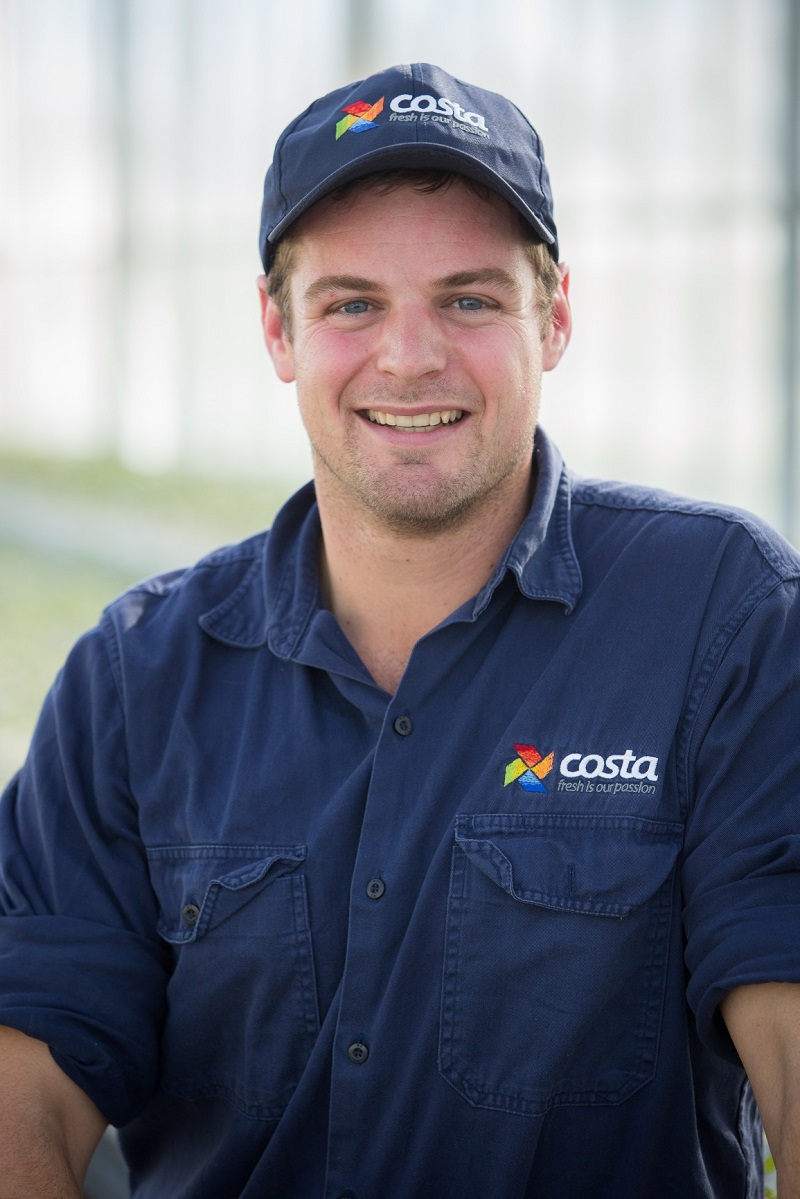The adage “from little things, big things grow” certainly applies to University of New England (UNE) PhD student Jack Mooney, who has swapped the backyard greenhouse of his undergraduate days for one of the largest glasshouses in the Southern Hemisphere.
Jack works as nursery manager at the state-of-the-art Costa glasshouse in Guyra, where he is responsible for the propagation of some 700,000 grafted tomato seedlings a year. Australia’s largest tomato grower produces up to 15 million kilograms of truss tomatoes annually across 30 hectares.
It’s a far cry from the backyard of Jack’s rented accommodation in Uralla, where he grew cucumbers to help support himself through his Bachelor of Rural Science studies. Starting with a small vegie garden, he soon added a greenhouse, packing shed and irrigation shed when business took off.
“I produced 3.6 tonne of cucumbers in my first year and 4 tonne the next,” Jack said. “I started selling to wholesalers around Armidale and then eventually expanded into the Sydney markets. I also pickled my cucumbers and sold them at local markets. It soon got a bit out of hand, a bit like the egg business I had as a teenager while living near Coffs Harbour.”
At just 15 years of age Jack bought 100 free-range chickens and established Jack’s Eggs in his first business venture. “Initially I sold the eggs to the footy club, so that we could have bacon and egg rolls at the games,” he said. “Three years later, it had grown to 5000 hens and I’d bought out the original supplier of my first layers. In the end I had 52 wholesale and retail outlets in the Coffs region. Mum used to drive me around to do the deliveries twice a week until I got my driver’s licence.”
But it wasn’t the last Jack saw of eggs. During his UNE studies he earned a Horizon scholarship with the Australian Egg Corporation and travelled Australia and overseas speaking at conferences. It was in his final year of study that he did an Honours project with Costa, looking at the factors that influence the success of healing in grafted tomatoes.
“Now I’m doing a PhD on tomato grafting, using the facilities at Costa to conduct research and development,” Jack said. “Previously the company’s success rate for grafting was variable however my preliminary research identified a few key factors to improve that rate and my PhD is a continuation of that. Now we’re getting 98% success each time.”
It’s a difficult balancing act at times, combining full-time work and study. “We have big fluctuations in busy times throughout the year; some days I might only have five or six staff working in the nursery and other days 50 or 60,” Jack said. “But it’s great to be focussing on just one role now. When I was running my own little businesses I did everything from seeding to growing, packing, deliveries, marketing, sales and accounting. I am very much at the back end of the Costa business and it’s very specialised. It’s all about scale, I guess.”
The technology is a little more advanced, too. “We have picking trolleys that drive themselves to the packing shed and unload themselves onto the packing line and climate-controlled computers that I can access remotely to monitor everything in nursery,” Jack said.


